The idea is simple. First, they take an arm from a dead rat and put it through a process of decellularization using detergents. This leaves behind a white scaffold. The scaffold is key because no artificial reconstructions come close to replicating the intricacies of a natural one.
Category: DNA – Page 17
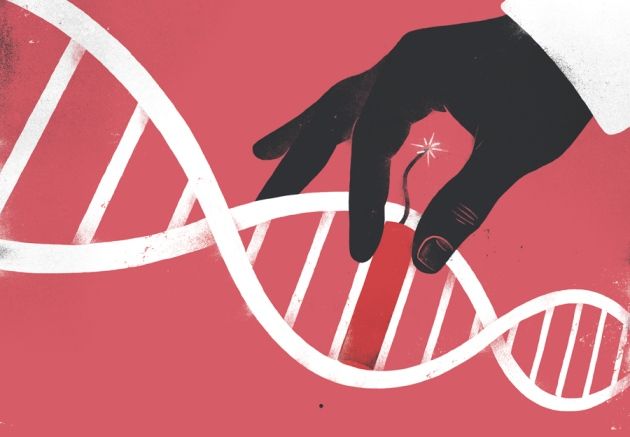
CRISPR, the disruptor — Heidi Ledford | Nature
“Researchers are considering how CRISPR could or should be deployed on organisms in the wild. Much of the attention has focused on a method called gene drive, which can quickly sweep an edited gene through a population. The work is at an early stage, but such a technique could be used to wipe out disease-carrying mosquitoes or ticks, eliminate invasive plants or eradicate herbicide resistance in pigweed, which plagues some US farmers.” Read more
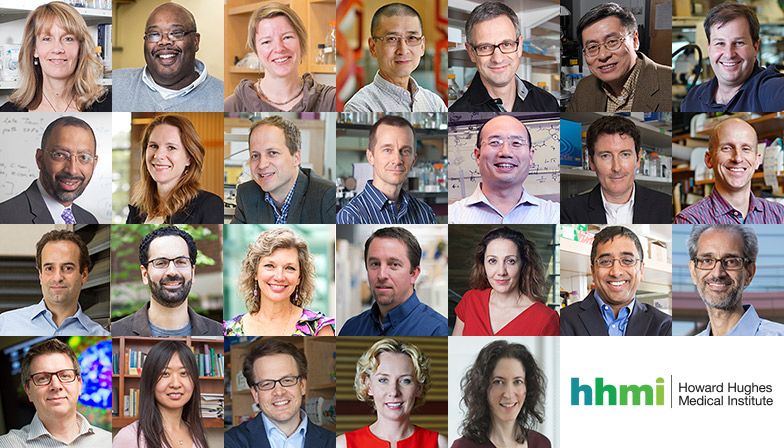
Howard Hughes Medical Institute Selects 2015 Investigators
“The Howard Hughes Medical Institute (HHMI) announced today that 26 of the nation’s top biomedical researchers will become HHMI investigators and will receive the flexible support necessary to move their research in creative new directions. The initiative represents an investment in basic biomedical research of $153 million over the next five years.”

Read This Before You Freak Out Over Gene-Edited Superbabies — Nick Stockton | WIRED
“The point being, science needs room to figure out exactly what this technology is capable of doing. Right now, researchers have a ton of potential on their hands, but not a lot of agreement about how far that potential reaches.” Read more
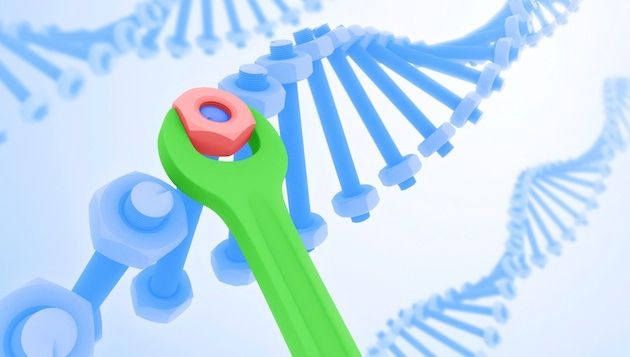
DNA Editing of Human Embryos Alarms Scientists
By David Cyranoski — Scientific American
In a Comment published on March 12 in Nature, Edward Lanphier, chairman of the Alliance for Regenerative Medicine in Washington DC, and four co-authors call on scientists to agree not to modify human embryos — even for research.
“Such research could be exploited for non-therapeutic modifications. We are concerned that a public outcry about such an ethical breach could hinder a promising area of therapeutic development,” write Lanphier and his colleagues, who include Fyodor Urnov, a pioneer in gene-editing techniques and scientist at Sangamo BioSciences in Richmond, California. Many groups, including Urnov’s company, are already using gene-editing tools to develop therapies that correct genetic defects in people (such as by editing white blood cells). They fear that attempts to produce ‘designer babies’ by applying the methods to embryos will create a backlash against all use of the technology.Read more
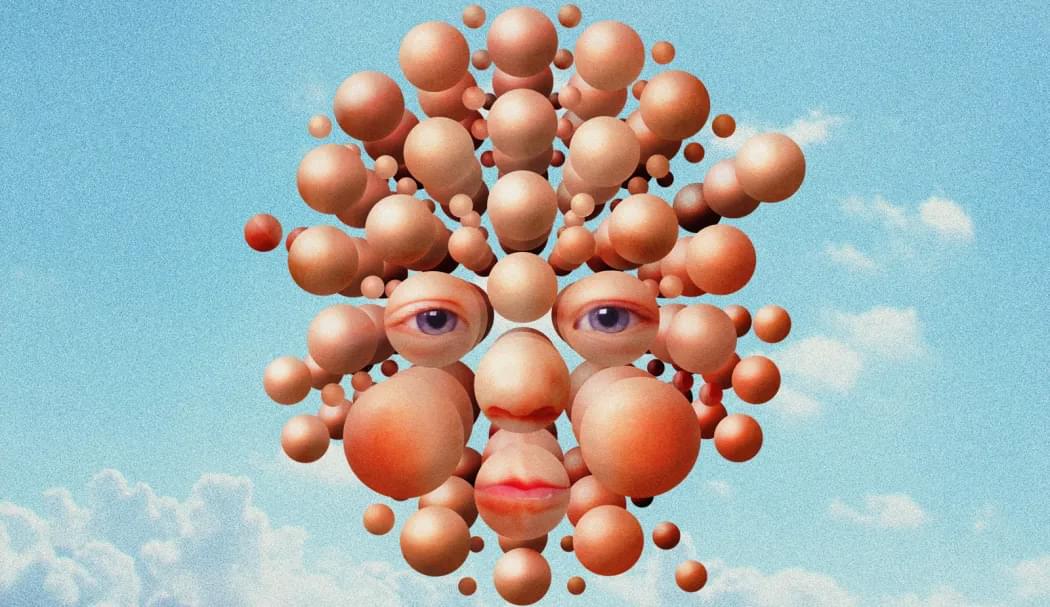
Engineering the Perfect Baby
By Antonio Regalado — MIT Technology Review
If anyone had devised a way to create a genetically engineered baby, I figured George Church would know about it.
At his labyrinthine laboratory on the Harvard Medical School campus, you can find researchers giving E. Coli a novel genetic code never seen in nature. Around another bend, others are carrying out a plan to use DNA engineering to resurrect the woolly mammoth. His lab, Church likes to say, is the center of a new technological genesis—one in which man rebuilds creation to suit himself.
Read more
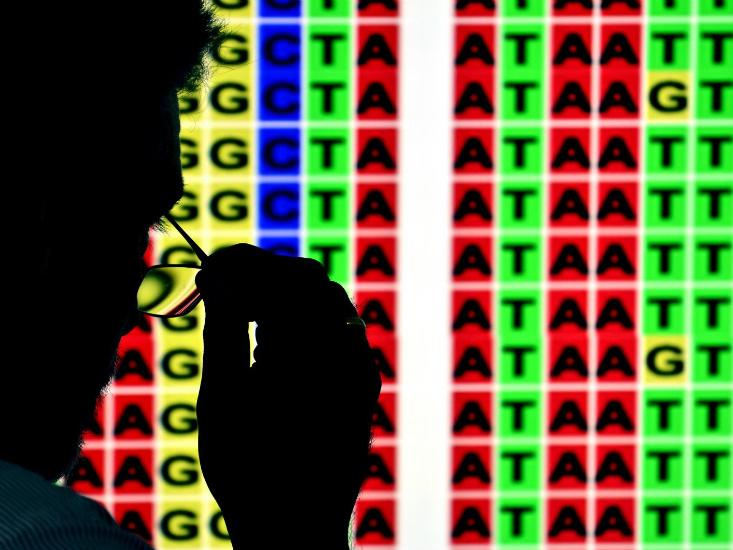
Is DNA the Language of the Book of Life?
Posted By Regan Penaluna — Nautilus
When we talk about genes, we often use expressions inherited from a few influential geneticists and evolutionary biologists, including Francis Crick, James Watson, and Richard Dawkins. These expressions depict DNA as a kind of code telling bodies how to form. We speak about genes similarly to how we speak about language, as symbolic and imbued with meaning. There is “gene-editing,” and there are “translation tables” for decoding sequences of nucleic acid. When DNA replicates, it is said to “transcribe” itself. We speak about a message—such as, build a tiger! or construct a female!—being communicated between microscopic materials. But this view of DNA has come with a price, argue some thinkers. It is philosophically misguided, they say, and has even led to scientific blunders. Scratch the surface of this idea, and below you’ll find a key contradiction.
Since the earliest days of molecular biology, scientists describe genetic material to be unlike all other biological material, because it supposedly carries something that more workaday molecules don’t: information. In a 1958 paper, Crick presented his ideas on the importance of proteins for inheritance, and said that they were composed of energy, matter, and information. Watson called DNA the “repository” of information.
Read more

World’s Data Could Fit on a Teaspoon-Sized DNA Hard Drive and Survive Thousands of Years
By Jason Dorrier — Singularity Hub
The blueprint of every living thing on the planet is encoded in DNA. We know the stuff can hold a lot of information. But how much is a lot? We could theoretically encode the world’s data (from emails to albums, movies to novels) on just a few grams of DNA. DNA already preserves life itself—now it might also preserve life as we live it.
According to New Scientist, a gram of DNA could theoretically store 455 exabytes of data. And Quartz drives the point home. If the world has about 1.8 zettabytes of data, according to a 2011 estimate, all the world’s information would fit on a four-gram DNA hard drive the size of a teaspoon.
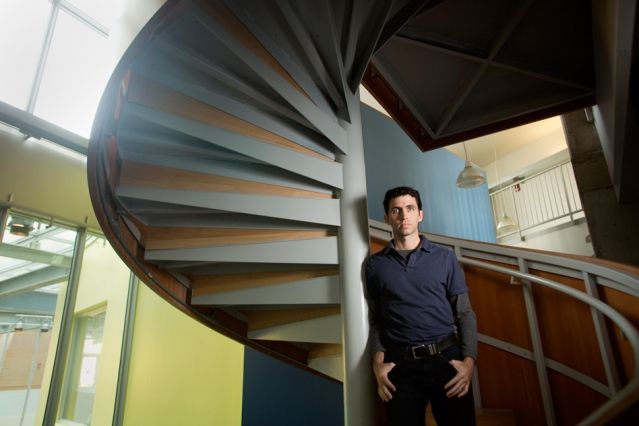
Researchers generate a reference map of the human epigenome
Helen Knight | MIT News correspondent
The sequencing of the human genome laid the foundation for the study of genetic variation and its links to a wide range of diseases. But the genome itself is only part of the story, as genes can be switched on and off by a range of chemical modifications, known as “epigenetic marks.”
Now, a decade after the human genome was sequenced, the National Institutes of Health’s Roadmap Epigenomics Consortium has created a similar map of the human epigenome.
Read more
New Book: An Irreverent Singularity Funcyclopedia, by Mondo 2000’s R.U. Sirius.
Quoted: “Legendary cyberculture icon (and iconoclast) R.U. Sirius and Jay Cornell have written a delicious funcyclopedia of the Singularity, transhumanism, and radical futurism, just published on January 1.” And: “The book, “Transcendence – The Disinformation Encyclopedia of Transhumanism and the Singularity,” is a collection of alphabetically-ordered short chapters about artificial intelligence, cognitive science, genomics, information technology, nanotechnology, neuroscience, space exploration, synthetic biology, robotics, and virtual worlds. Entries range from Cloning and Cyborg Feminism to Designer Babies and Memory-Editing Drugs.” And: “If you are young and don’t remember the 1980s you should know that, before Wired magazine, the cyberculture magazine Mondo 2000 edited by R.U. Sirius covered dangerous hacking, new media and cyberpunk topics such as virtual reality and smart drugs, with an anarchic and subversive slant. As it often happens the more sedate Wired, a watered-down later version of Mondo 2000, was much more successful and went mainstream.”
Read the article here >https://hacked.com/irreverent-singularity-funcyclopedia-mondo-2000s-r-u-sirius/